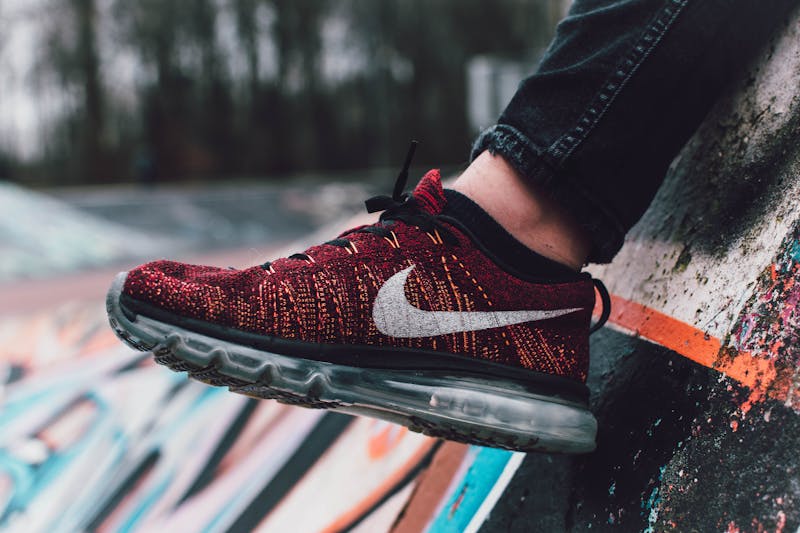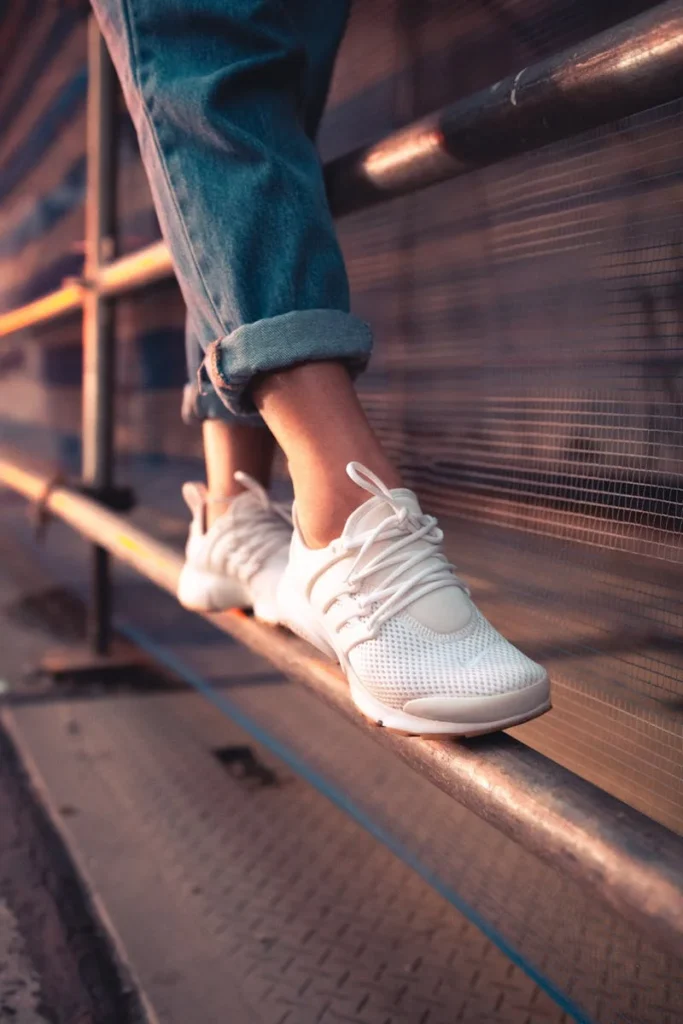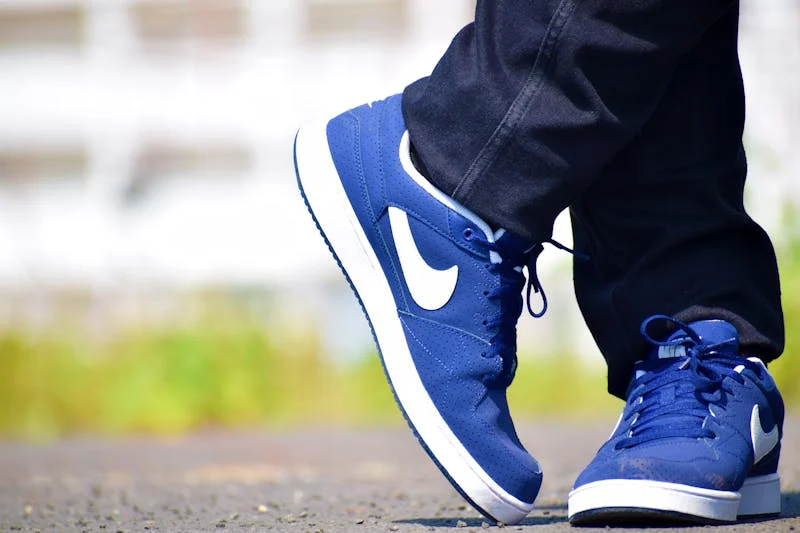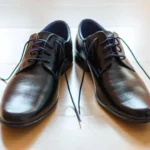Introduction
Are you tired of the embarrassing squeaking sound your shoes make every time you take a step?
If so, you’re not alone.
Shoe squeaking can be a frustrating and annoying problem that many people face.
But fear not! In this guide, I will share with you some effective tips and tricks on how to stop your shoes from squeaking and walk in peace.
Why Do Shoes Squeak?
Before we delve into the solutions to stop your shoes from squeaking, let’s first understand why shoes squeak in the first place.
The most common reasons for shoe squeaking include:
- Moisture: When moisture gets trapped inside your shoes, especially in the insole or outsole, it can create a squeaking sound as you walk.
- Friction: Certain shoe materials, such as rubber or plastic, can rub against each other while walking, causing a squeaking noise.
- Loose Parts: Loose insoles, tongues, or outsoles can move around and create a squeaky sound with each step.
- Worn Outsoles: Over time, the outsoles of your shoes can wear down, leading to friction between the shoe and the ground, resulting in squeaking. Now that we know why shoes squeak, let’s explore how to address this common issue.
How Do I Stop My Shoes From Squeaking?
I know how frustrating it can be to have noisy shoes, but fret not!
Here are some effective methods to silence those squeaky shoes and restore your peace of mind:
1. Dry Your Shoes Thoroughly
Ensure your shoes are completely dry before wearing them. Moisture trapped inside your shoes can cause squeaking.
You can stuff your shoes with newspaper or use a shoe dryer to speed up the drying process.
2. Use Baby Powder or Talcum Powder
Sprinkling baby powder or talcum powder inside your shoes can help reduce friction between the insole and outsole, thus minimizing the squeaking noise.
3. Apply Lubricant
Applying a small amount of lubricant, such as petroleum jelly or silicone spray, to the insole and outsole of your shoes can help reduce friction and eliminate squeaking.
4. Insert Shoe Inserts
Using cushioned shoe inserts or insoles can not only provide extra comfort but also minimize movement inside the shoe, thus reducing the squeaking sound.
5. Tighten Loose Parts
If you have loose insoles, tongues, or outsoles, consider using shoe glue to secure them in place and prevent them from moving around and squeaking.

6. Replace Worn Outsoles
If the outsoles of your shoes are worn out, consider taking them to a cobbler to have them replaced.
New outsoles can eliminate the friction that causes squeaking.
7. Adjust Your Walking Style
Sometimes, the way you walk can contribute to shoe squeaking.
Try adjusting your walking style by taking shorter steps or walking more slowly to see if it reduces the noise.
8. Sprinkle Cornstarch
Cornstarch is another effective dry lubricant that can help reduce friction and absorb moisture inside your shoes, ultimately preventing squeaking.
9. Avoid Wet Surfaces
Try to avoid walking on wet surfaces, as moisture can seep into your shoes and exacerbate the squeaking problem.
Opt for dry paths whenever possible.
10. Visit a Professional Shoe Repair Shop
If all else fails, consider taking your squeaky shoes to a professional shoe repair shop.
They have the expertise to diagnose the issue and provide a lasting solution.
Now that you have some effective strategies to stop your shoes from squeaking, go ahead and try them out to enjoy a quiet and peaceful walk.
Additional Tips and Tricks
In addition to the methods mentioned above, here are some extra tips and tricks to help you combat shoe squeaking:
1. Rotate Your Shoes
Avoid wearing the same pair of shoes every day.
Rotating your shoes can give them time to dry out and reduce the chances of moisture buildup, which can lead to squeaking.
2. Keep Your Feet Dry
Moist feet can contribute to moisture inside your shoes.
Make sure to keep your feet dry by wearing moisture-wicking socks and allowing your shoes to air out after wearing them.
3. Check for Debris
Sometimes, small debris like rocks or dirt can get trapped in the crevices of your shoes, causing a squeaking sound.
Check your shoes regularly and remove any foreign objects.
4. Use Leather Conditioner
If you have leather shoes that squeak, applying a leather conditioner can help soften the material and reduce friction, ultimately eliminating the squeaking noise.
5. Try Out Different Insoles
Experiment with different types of insoles to see if a particular material or design can help reduce squeaking.
Gel or memory foam insoles are known for their noise-reducing properties.
6. Skip Noisy Shoes
If you have a pair of shoes that persistently squeak no matter what you do, it may be time to retire them and invest in a new pair.
Sometimes, certain shoes are just prone to squeaking.
By incorporating these additional tips and tricks into your shoe care routine, you can effectively prevent and eliminate shoe squeaking for good.

FAQs (Frequently Asked Questions)
1. Can I stop my shoes from squeaking if they are old?
Yes, you can stop your old shoes from squeaking by applying lubricant, using baby powder, or replacing worn outsoles.
These methods can help reduce friction and eliminate the squeaking noise.
2. Why do my new shoes squeak?
New shoes may squeak due to the materials used in their construction, such as rubber or plastic, which can create friction and produce a squeaking sound.
To stop your new shoes from squeaking, you can try drying them thoroughly, using baby powder, or applying lubricant.
3. Is it normal for certain shoe materials to squeak?
Yes, it is completely normal for certain shoe materials to squeak.
Squeaking can occur due to the friction between different parts of the shoe rubbing against each other as you walk.
This is especially common in new shoes or those made of certain materials like leather or rubber.
While it can be a bit annoying, it usually goes away as the shoes are broken in.
If the squeaking persists or bothers you, you can try using talcum powder or a bit of lubricant to reduce the friction and silence the squeak.
4. Can I fix squeaky shoes at home?
Yes, you can fix squeaky shoes at home using simple household items like baby powder, lubricant, or shoe inserts.
These DIY methods can help eliminate shoe squeaking without the need for professional repair.
5. How long does it take for shoe squeaking to stop?
The time it takes for shoe squeaking to stop can vary depending on the cause of the squeaking and the method used to fix it.
In most cases, applying lubricant or using baby powder can provide immediate relief from shoe squeaking.
6. Are there certain shoe brands that are more prone to squeaking?
While shoe squeaking can occur in any brand or type of shoe, certain brands with specific materials or construction may be more prone to squeaking.
Choosing shoes with quality materials and construction can help reduce the likelihood of squeaking.
Conclusion
In conclusion, dealing with squeaky shoes can be a bothersome issue, but with the right techniques and preventive measures, you can silence those noisy soles and walk in peace.
By following the tips and tricks outlined in this guide, you can effectively stop your shoes from squeaking and enjoy a quiet and comfortable walking experience.
So, say goodbye to those pesky squeaks and hello to silent strides!



